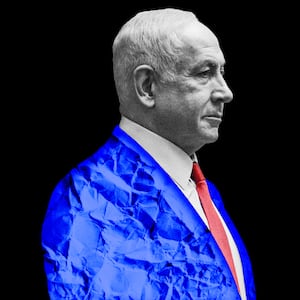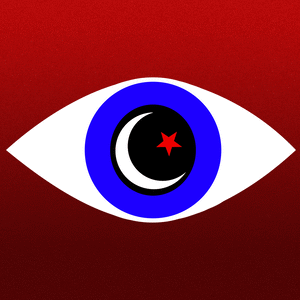If you had any doubt about the brutality of Israel’s war on Gaza and the Palestinians, then you should look no further than Israel’s defense minister, Yoav Gallant, who stated last week that he “ordered a complete siege on the Gaza Strip. There will be no electricity, no food, no fuel. Everything is closed. We are fighting human animals, and we will act accordingly.”
Israel has acted accordingly, not only by using animalistic metaphors, but other rhetorical tactics to dehumanize Palestinians in order to sanction, justify, and receive widespread support for its genocide in progress.
While Israel has continued to maintain that Hamas’ “unprovoked” attacks is what led to launching its current war on Gaza and the Palestinians, it has consistently deployed this narrative to erase the fact that Israel was built on a violent foundation of settler-colonialism—which has constituted an ongoing war against Palestinians from which freedom, justice, and dignity were never designed to be realized.
In spite of this history, Israel’s narrative has been so effective in legitimizing violence against Palestinians, that after days of the launch of Israel’s war on Gaza, Prime Minister Benjamin Netanyahu stated—with no vocal reproach or condemnation—that "we are striking our enemies with unprecedented might," and "I emphasize that this is only the beginning."
“Only the beginning” has, however, already meant catastrophic violence against Palestinians.
In fact, in just one week, Israel has cut power, water, and fuel to Gaza while at the same time dropping 6,000 bombs on Gaza, using deadly white phosphorus to strangle Palestinians, and mobilizing 360,000 reservists and troops at the border for an impending ground invasion.
Meanwhile, Israel, knowing full well that it has effectively made Gaza an open air prison, warned Palestinians in north Gaza that they should leave their homes. At the same time, the Palestinian Health Ministry in Gaza reported the killing of at least 70 Palestinians, with another 200 injured while they were trying to evacuate. If Israel has made anything clear, it’s that it’s neither ready, willing, or interested in sparing any Palestinian lives.

Palestinians search for casualties under the rubble of a house in the southern Gaza Strip, Oct. 8, 2023.
Ibraheem Abu Mustafa/ReutersThus far, Palestinian health ministry sources have reported in Gaza and the West Bank at least 2,383 Palestinians have been killed—with 2,329 killed in Gaza—while 10,814 Palestinians have been injured. Of this number, at least 724 of the Palestinians killed were children, while 458 were women.
Leveraging and weaponizing the terrorism narrative to erase its legacy and consistent policies of collective punishment, Israel has continued to maintain that its war is against Hamas. However, Israeli soldier Betzalel Talijah was extremely explicit about Israel’s intent to target Palestinians en masse in an interview by CNN’s Abby Phillip, when he told Phillip, “The war is not just with Hamas, the war [is] with all the civilians who cannot see us as human beings.”
With no end to Israel’s assault in sight, a growing cadre of Israeli politicians and genocidal cheerleaders, have sought to ensure the expression of robust narratives that not only wish for, but guarantee Palestinians’ certain death, all while governments around the world have continued to rally around Israel.
Tzipi Navon, Sara Netanyahu’s advisor, enthusiastically parading brutality, said that it was “not enough to flatten Gaza” and that Israel should “save their tongues for last, so we can enjoy his screams, his ears so he can hear his own screams, and his eyes so he can see us smiling,” according to a report by Middle East Eye. Israel’s Minister of Energy and Infrastructure also didn’t mask his callous indifference to Palestinian lives in its fight against Hamas, adding that that “they will not receive a drop of water or a single battery until they leave the world.”
While Israel’s killings of Palestinian people have continued unabated, there have been some calls to address the humanitarian crisis unfolding in Gaza. But in deploying the language of “humanitarian crisis”—language which often cues natural disasters or events otherwise not caused directly by states or other human actors, it obscures and disguises the fact that there is a party responsible for this crisis: Israel.
UN spokesperson Stéphane Dujarric told journalists on Friday, that UN Secretary General António Guterres has “been in constant contact with Israeli authorities urging them to avert a humanitarian catastrophe.”
In addition to deploying this term in obscure ways, what does “averting” a humanitarian catastrophe mean to a country that has explicitly and overtly declared genocidal intentions? The Israeli government is not trying to avert any humanitarian crisis, but instead to create one of the worst ones that Palestinians have been subjected to. Statements from Israeli officials have made this clear, such as when Likud Party Knesset member Ariel Kallner said, “right now, one goal: Nakba! A Nakba that will overshadow the Nakba of ‘48 in Gaza…”
At a Human Rights Campaign dinner, President Joe Biden acknowledged some harm to Palestinians in Israel’s ongoing war against Gaza, which is disingenuous for a number of reasons, not least of which is the U.S.’ repetitions of unwavering support for Israel and its state violence, the provision of aid for Israel that in the last 75 years has exceeded any other country, and the further enabling of Israel’s war against Gaza.

Mohammad Abu Daqa, who survived Israeli strikes that killed eight family members embraces a relative in the southern Gaza Strip Oct. 15, 2023.
Ibraheem Abu Mustafa/ReutersThe Biden administration has additionally provided interceptors for Israel's Iron Dome missile defense system, artillery shells, precision-guided missiles, fighter jets, and an aircraft carrier named the USS Gerald R. Ford. To this end, Biden stated, “the humanitarian crisis in Gaza—innocent Palestinian families and the vast majority that have nothing to do with Hamas—they’re being used as human shields.” Not only did Biden’s statement effectively divorce Israel from the source of Gaza’s humanitarian crisis, it instead blamed the crisis on Hamas.
While Palestinians continue to suffer and reel from Israeli violence, they are demanding an immediate ceasefire, allowing humanitarian aid into Gaza, and a guarantee of UN protection for Gaza. Though the UN and a handful of countries have begun to urge a ceasefire, Israel has shown no indication of slowing down or ceding its relentless war.
The U.S. has also continued to embolden Israel, even in the face of growing calls to end U.S. military aid to Israel. A bipartisan resolution introduced by Rep. Michael McCaul (R-TX) has 400 co-sponsors that reiterates this commitment, with the resolution text mentioning a 2016 U.S.-Israel MOU which stipulates the U.S. will provide $3.3 billion per year in Foreign Military Financing Program assistance, and $500 million per year in missile defense, for ten years.
In the midst of Israel’s ongoing war on Gaza and the Palestinians, and its violence that has continued to be celebrated and endorsed, the path forward remains nebulous.
What is clear is that the disruption of the status quo of settler-colonial violence is well on its way, thanks to Palestinians who have refused to live under Israel’s violent shoes. Moreover, rather than appealing to the morality of the oppressors to avert violence, as Black revolutionary Assata Shakur warned against, Palestinians have built a powerful movement of people and communities who have consistently asserted their humanity and dignity—while categorically rejecting anything less than self-determination, autonomy, and liberation.
Their movement has inspired the world over, and while nation-states have continued to support Israel, people and communities across the globe have rallied behind Palestinians’ courageous calls for freedom—from Tunisia to Jordan to Yemen to the U.K.
It will certainly be impossible for any turning back from the damage that Israel and its global supporters have caused—including through governments and media apparatuses. But Palestinian resistance won’t end here and will continue until freedom is gained, because they believe with uncompromising determination—and have taught the rest of us—that hope is a spirit that can never be killed—not even by the most powerful states.









